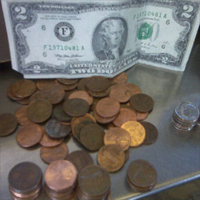I spent the five happiest years of my life in a morgue. As a forensic scientist in the Cleveland coroner’s office I analyzed gunshot residue on hands and clothing, hairs, fibers, paint, glass, DNA, blood and many other forms of trace evidence, as well as crime scenes. Now I'm a certified latent print examiner and CSI for a police department in Florida. I also write a series of forensic suspense novels, turning the day job into fiction. My books have been translated into six languages.
See next question.
I did not know gooseflesh was a characteristic of rigor, and if I'm understanding rigor to mean rigor mortis then of course they'd already be dead before reaching that stage. But as for how likely it is that pre-mortem gooseflesh would remain after death or be affected by freezing after death, I'm afraid you'd have to ask a pathologist. I don't have the expertise to answer that.
I'm sorry I can't give you any concrete timelines (a pathologist would know better than I) but I would think at least a couple of days. Air conditioning would definitely make the smell more tolerable than no air conditioning, but still storage units usually have just enough A/C to keep high heat and humidity from causing mold or causing problems with electronics. That's not the same thing as refrigeration. It might also depend on how close the bodies are to the door. People walking by might catch a whiff of something bad but assume that an errant mouse or cat somehow died inside. Thinking that, passers-by might be reluctant to open the door to someone else's property. The storage unit owners, even seeing it unlocked, might try to at least contact the client first, maybe calling the home and the guy's cell which of course he's not answering. Honestly you could probably make it anything you wanted--if you want it discovered quickly, put the unit at the front of the property or give it a fussy neighbor client who visits that same week. If you want it to be a long time, put it at the rear of the property where no other clients visited their units and all units lead to an outer door that didn't show any signs of damage (because both victims and husband entered with their assigned passkey) so the storage unit employees never had a reason to enter to notice either a smell or an unlocked unit. Good luck!
Apart from the physical hardships (bad smells, having to get out of bed in the middle of the night, sometimes having to work 16-20 hour days), the worst part is what would be the worst part in any job--problem co-workers or bad management. Happily I don't have issues like that right now, but if a really horrible management staff were hired in, that might make me quit or at least look for another agency.
Movie Theater Employee
 Why is movie theater food so overpriced?
Why is movie theater food so overpriced?
Farmer
Toll Collector
 Do you think there will be a time where all tolls are automated?
Do you think there will be a time where all tolls are automated?
See above.
Okay, I emailed you.
I don't understand what you mean by 'purification of blood.'
-OR-
 Login with Facebook
Login with Facebook (max 20 characters - letters, numbers, and underscores only. Note that your username is private, and you have the option to choose an alias when asking questions or hosting a Q&A.)
(A valid e-mail address is required. Your e-mail will not be shared with anyone.)
(min 5 characters)
By checking this box, you acknowledge that you have read and agree to Jobstr.com’s Terms and Privacy Policy.
-OR-
 Register with Facebook
Register with Facebook(Don't worry: you'll be able to choose an alias when asking questions or hosting a Q&A.)